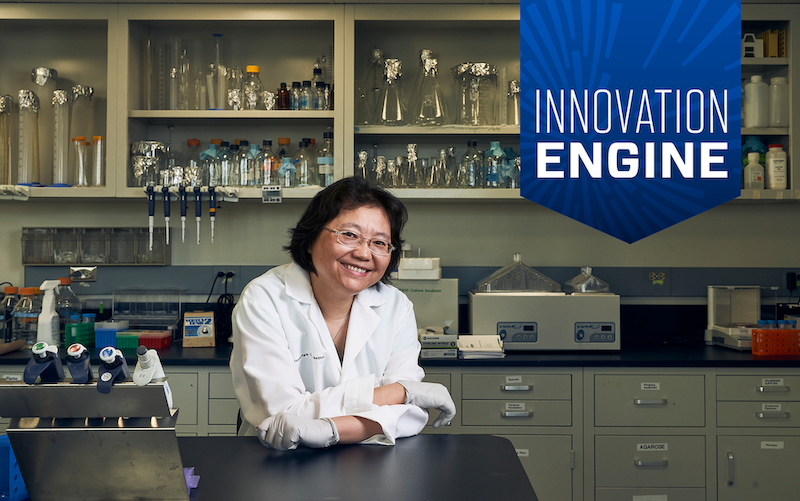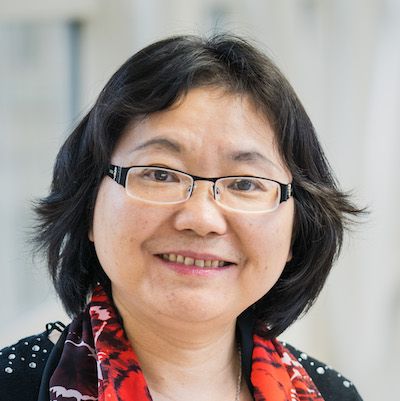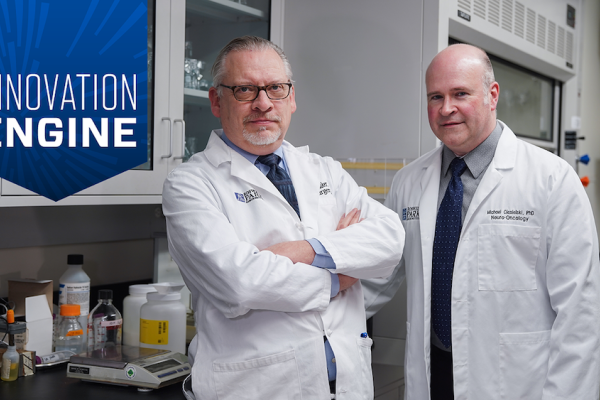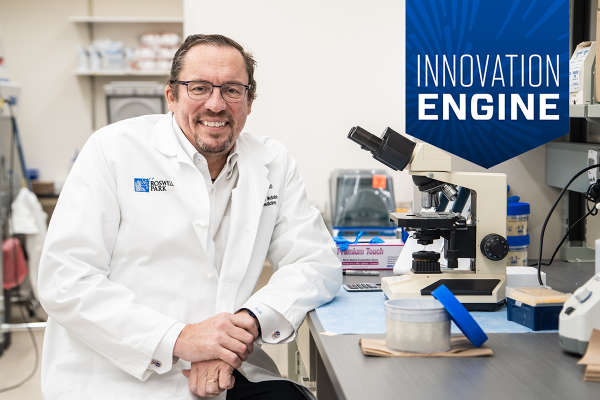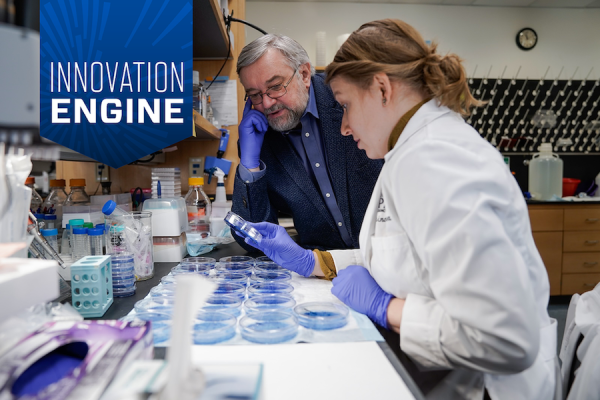Eating cruciferous vegetables could keep cancer from recurring, Roswell Park research shows
The Innovation Engine series highlights high-impact Roswell Park science that advances the priorities of the National Cancer Plan — a roadmap for working together to end cancer as we know it. The work outlined in this post supports Goal #1: Prevent Cancer.
If you’ve been treated for early-stage bladder cancer, you may want to visit the local farmers market as a first step toward preventing the disease from coming back. Researchers at Roswell Park Comprehensive Cancer Center have found compelling evidence that compounds called isothiocyanates (often abbreviated as ITCs), present in certain types of vegetables, can reduce the risk that the cancer will recur after initial treatment.
Isothiocyanates are found primarily in cruciferous vegetables, such as arugula, chard, bok choy, broccoli, cauliflower, collard greens, mustard greens, Brussels sprouts, cabbage and kale, among many others. They increase the production of enzymes that can help detoxify cancer-causing substances and clear them out of the body.
“Isothiocyanates also can prevent cancer cells from dividing and cause them to self-destruct through a process called apoptosis. That’s what makes them very attractive in terms of cancer prevention,” says Li Tang, MD, PhD, Professor of Oncology in the Department of Cancer Prevention and Control at Roswell Park. There’s some evidence that isothiocyanates may provide the same prevention benefit for other types of cancer, including breast, prostate, colon, skin — maybe even others — but more work needs to be done in those areas. Right now Dr. Tang and her team have focused on the bladder because it’s easily accessible to isothiocyanates.
How does it work?
Eating cruciferous vegetables releases isothiocyanates into your digestive system, where they’re metabolized and excreted into the urine — which ends up in your bladder. “In early-stage bladder cancer, the tumors grow on the surface of the bladder lining, so isothiocyanates in the urine come into direct contact with those cancer cells,” explains Dr. Tang. She adds that if you eat cruciferous vegetables as part of your evening meal and later turn in for the night, the isothiocyanate-rich urine will remain in your bladder longer, fighting the cancer cells while you’re asleep.
Dr. Tang’s long-standing interest in nutrition and cancer prevention has fueled her research for the past 20 years and led to several publications about isothiocyanates. Most recently, she and her Roswell Park team joined forces with colleagues from Kaiser Permanente Northern California to launch the Be-Well Study, funded by the National Cancer Institute, to find out whether eating cruciferous vegetables had any impact on preventing disease recurrence in people with early-stage bladder cancer, also called non-muscle-invasive bladder cancer (NMIBC). The study enrolled 1,472 patients who were diagnosed with early-stage bladder cancer between 2015-2019. At the time of diagnosis, participants were asked how often they ate cruciferous vegetables, and their urine was collected and tested to determine the level of isothiocyanates it contained. Then their medical progress was tracked for an average of 24 months.
“We found that high intake of cruciferous vegetables was associated with delayed recurrence and reduced risk of having the disease recur multiple times,” says Dr. Tang, who served as co-principal investigator of the clinical trial and senior author of the study, which was published earlier this year in the American Journal of Nutrition. “Most important, high intake was associated with a reduced risk that the disease would get worse.”
The Roswell Difference
Pioneering innovation like this is part of what makes Roswell Park an "Exceptional" comprehensive cancer center, designated by the National Cancer Institute.
A way to avoid more aggressive treatment
Delaying recurrence and reducing disease progression is important because once NIMBC has invaded the muscle, future treatments must be more aggressive and usually include removal of the patient’s bladder, which significantly impacts the patient’s quality of life.
While other research groups have focused on isothiocyanates and cancer prevention, Dr. Tang says her group takes a new approach. “Our work is very different, because we considered metabolism of isothiocyanates to provide tailored guidance for survivors of early-stage bladder cancer. We are trying to develop a dietary intervention program to help patients. We tell them which cruciferous vegetables contain higher levels of isothiocyanates, how to cook them and when to eat them. We’re guiding bladder cancer survivors based on our laboratory findings and clinical evidence.”
She notes that levels of isothiocyanates vary in different cruciferous vegetables. “We purchased 21 kinds from different markets in different seasons. We found a huge variation in ITC levels, as much as 300-fold, and some variation exists even in the same type of vegetable. That’s due to growing conditions, harvesting conditions and storage. In general we found that arugula had a little higher concentration than the others. Broccoli and cauliflower are in the middle. But no matter what, if you eat cruciferous vegetables, you’ll get some isothiocyanates.”
Cooking methods also can affect isothiocyanate levels, she says. Stir-frying, microwaving and steaming for a short time actually increase the levels in some types of vegetables. But boiling, stewing or drying the vegetables — for example, to make kale chips — reduces the isothiocyanate yield.
While it’s possible to extract these cancer-fighting compounds from cruciferous vegetables to produce capsules that could be purchased over the counter, Dr. Tang says the process is complicated and expensive. “Isothiocyanates are not the only type of healthy phytochemical present in cruciferous vegetables, so there are other good reasons to opt for whole vegetables. The vegetables also contain many other ingredients that help keep us healthy. The whole vegetable is cheaper, readily available and offers multiple health benefits.
“My family eats cruciferous vegetables every day,” she says. “People need to know that this is something you can easily do in daily life to help fight cancer.”
